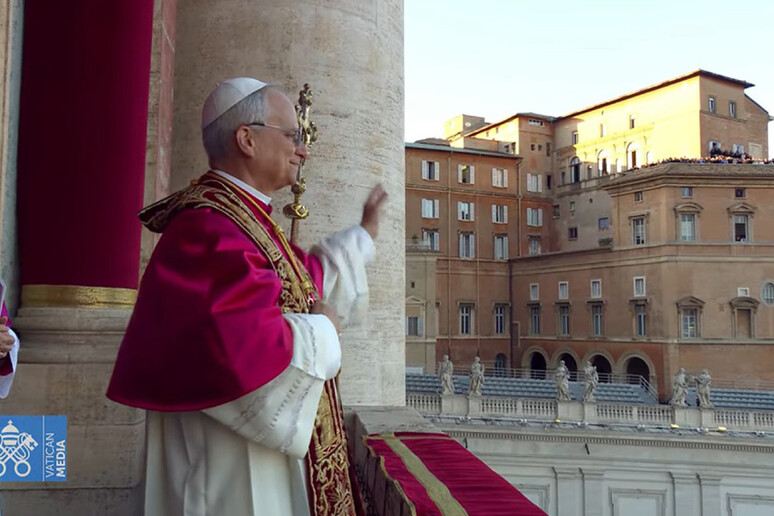New Pope Leo XIV, Robert Francis Prevost, 69 years old, is a curious figure of a "Latin American Yankee" - and for this reason was the candidate for pope of the cardinals of North and South America, very large groups.
Prevost was a cardinal of the Curia, close to late Pope Francis.
Since 2023 he has been prefect of the Dicastery for Bishops and president of the Pontifical Commission for Latin America.
In the same year he received the purple. Born in Chicago to a family of French origin, an Augustinian, he graduated in Canon Law. From 1985 to 1999 he was a missionary in Peru.
Back in Chicago, in 2001 he became prior of the Order of St.
Augustine, a position he held until 2013. In that year he returned to Peru, as bishop of Ciclayo. Francis called him to Rome in 2023.
The American bishop, who speaks fluent Spanish, Portuguese, Italian and French, had shown particular attention to the marginalized and migrants in Peru, much appreciated by Francis.
As prefect for the bishops, he appointed hundreds of prelates, forging a generation of "Francis-like" religious, open and progressive.
Prevost earned a reputation as a reserved and balanced cardinal.
In 2023 he managed together with the secretary of state Pietro Parolin the problem of the German Synodal Path: a debate within the German dioceses that was becoming too innovative, and risked causing a schism.
Prevost brought the path back to orthodoxy, but without trauma.
The votes of Latin American cardinals, who do not have strong candidates, and of the Americans, too divided between progressives and conservatives, evidently converged on his name.
Prevost could count on the support of the powerful Honduran cardinal Oscar Rodriguez Maradiaga: formerly Francis's "pope-maker", he is now over eighty and out of the conclave, but is still very influential.
However, the American prelate is burdened by a couple of accusations of having covered up sexual abuse by priests, in Chicago and Peru.
Last year, Prevost and his successor in the capital of Illinois, Blaise Cupich (also a progressive and a papal candidate) were denounced for not having taken action between the 1980s and 1990s against two Augustinians, later convicted of abuse.
In Peru, the prefect for bishops was accused by three sisters of having covered up their complaint of having suffered sexual abuse by two priests.
The diocese of Ciclayo explained that the then bishop had advised them to file a complaint with the civil authorities, and that the canonical process had been interrupted when the judiciary had archived the proceedings due to the statute of limitations.
ALL RIGHTS RESERVED © Copyright ANSA











